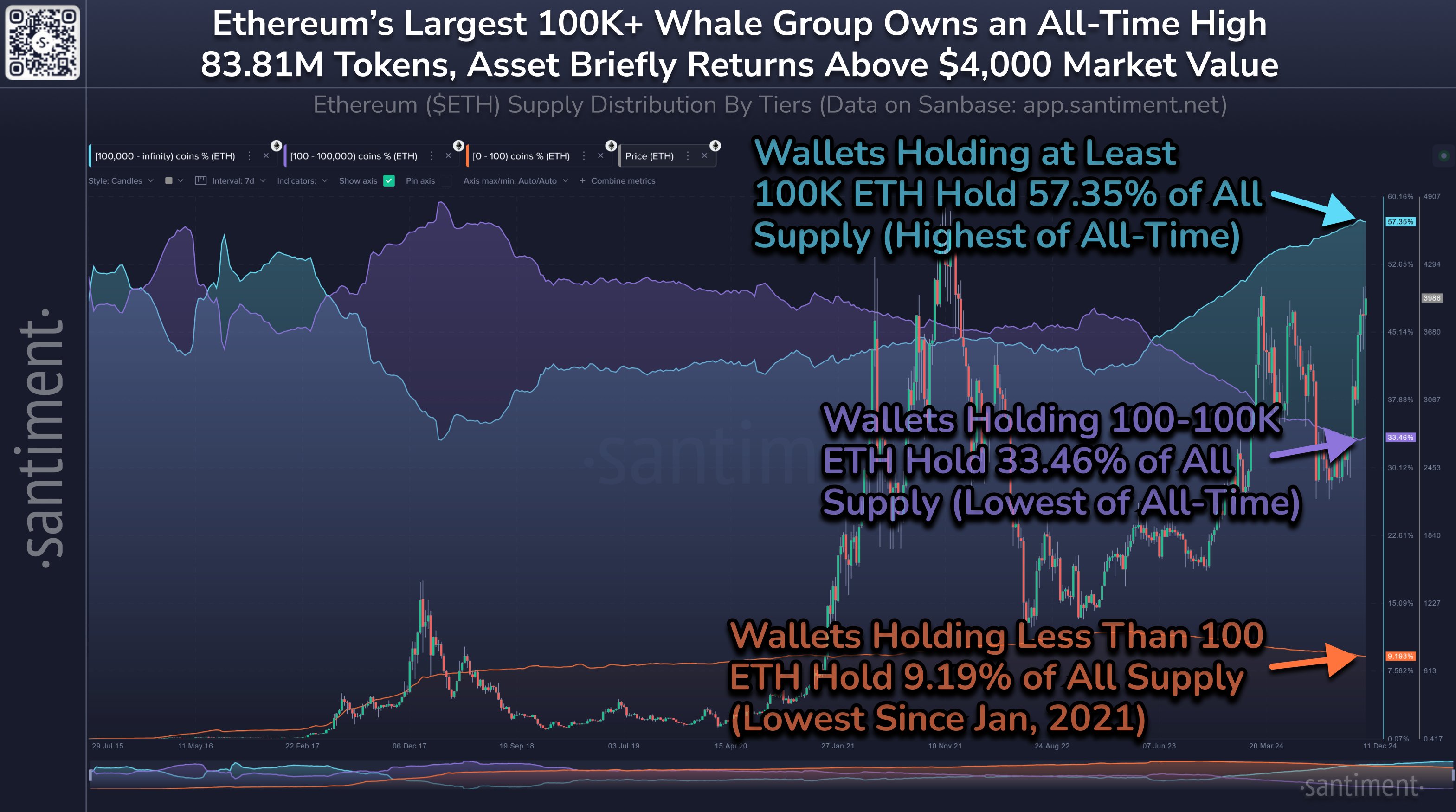Just 104 Ethereum Whales Control 57% Of All Supply, Data Reveals
On-chain data shows the most massive Ethereum whales control most of the supply, with their holdings only continuing to grow.
Ethereum Mega Whales Own More Than 57% Of All Tokens In Existence
In a new post on X, the on-chain analytics firm Santiment has discussed how the ETH supply held by the different segments of the user base has looked recently.
The indicator of relevance here is the “Supply Distribution,” which keeps track of the percentage of the Ethereum circulating supply that a given wallet group is holding right now.
Addresses or investors are divided into these cohorts based on the number of coins they carry in their balance. For instance, the 1 to 10 coins group includes all wallets owning between 1 and 10 ETH.
In the context of the current topic, three broad ranges containing multiple cohorts are of interest: 0 to 100 coins, 100 to 100,000 coins, and 100,000+ coins. The first includes the market’s small hands, like the retail investors.
These holders don’t have holdings that amount to much in the grand scheme of things, so they individually don’t hold any importance in the market. In the second cohort, the 100 to 100,000 coins one, the wallets start becoming a bit large, but only toward the end of the range.
The range includes two of the key investor groups in the sector, the sharks and whales. The whales are significantly more massive than the sharks, so they are the cohort carrying the more importance in the market.
Finally, the largest addresses on the network hold more than 100,000 ETH. At the current price, this amount nears $400 million, so the investors in this group would be quite massive indeed. An appropriate name for them would perhaps be “mega whales.”
Now, here is the chart shared by the analytics firm that shows the trend in the Supply Distribution for these three Ethereum wallet ranges over the past decade:
As displayed in the above graph, the percentage of the Ethereum supply held by the mega whales has risen over the past couple of years. At the same time, both smaller wallet ranges have lost dominance, with the sharks and whales in particular witnessing a rather steep drop.
The mega whales, consisting of only 104 members, today own 57.35% of the ETH supply, a new all-time high. Meanwhile, the holdings of the sharks and whales sit at an all-time low of 33.46%.
Generally, the centralization of supply isn’t positive for any cryptocurrency. Still, it matters especially for Ethereum as the network runs on a consensus mechanism based on the Proof-of-Stake (PoS). This means that if an entity or a group of entities controls 51% of the supply, they can take over the network.
That said, many mega whales would not be ‘real’ investors but wallets belonging to staking pools and other platforms, who merely hold the coins in one place on behalf of many investors.
ETH Price
Ethereum has seen a pullback during the past day, as its price is now $3,930.




